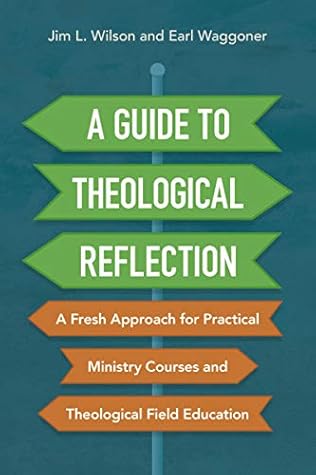Kindle Notes & Highlights
by
Jim Wilson
Read between
July 9 - July 16, 2021
Would it have been wiser to prioritize those who paid my salary? (Established, older, more mature believers often give more in tithes and offerings than money-strapped, young college students do.) Would that make me a hireling? Is this a false dichotomy? Is it possible to value both groups while prioritizing outreach to a target group?
The church grew. My relationships suffered. Was this period of my ministry more of a success or a failure?
One day, our supervisor told us we were going to remember him and his departure that day and directed us to write a letter to him. When all our letters were written, we gathered in a circle with one empty chair representing him and read our letters aloud. I can tell you I cried a lot when I read mine, and it was the most helpful thing for me. When we finished, she took us outside to the delivery area of the hospital and made us tear the letters apart. We were to never read them again. I can’t tell you how healing it was.”
When I kept silent, my bones wasted away through my groaning all day long. For day and night your hand was heavy on me; my strength was sapped as in the heat of summer.
About the people in the incident: Disappointed that Pastor Smith could have been an advocate but instead spoke against it. Disappointed that the elders used their perception of our gifting and the need for the training based solely on its benefit to CC. b. About the incident: Unsupported, discouraged, and unvalued as a pastor who has served faithfully for ten years.
1. Everyone involved commits to the confidential nature of the case study or verbatim report.6 Real names are never used. 2. The people depicted in a case study or verbatim report are real people, and many times the stories include both the fragile and resilient nature of life itself. 3. The sharing of each verbatim should begin with a prayer asking for God’s counsel and close with a prayer lifting up the individuals represented in the verbatim.
Have you ever asked God to search you and test you? Have you prayed David’s prayer, “Search me, God, and know my heart; test me and know my anxious thoughts. See if there is any offensive way in me, and lead me in the way everlasting” (Ps. 139:23–24)? To some degree, theological reflection is a means of praying that prayer. When operating with honesty and integrity, those who practice theological reflection are seeking to please God more and be more effective as ministers of the gospel. The growth covenant is a crucial tool to help you do that.
A growth covenant is a theological reflection tool that allows ministers to plan for the closing of the gap through an intentional growth plan. It is not a legal contract protecting against nonperformance. It is a covenant formalizing an agreement to promote promise keeping.
The theological reflection tool known as the growth covenant builds on the legal and biblical understandings of covenant. While the growth covenant is not a legally binding agreement, its value is enhanced if all parties approach the agreement with the same gravity as a legal agreement. The minister will gain the most from this agreement if it is approached with the level of commitment that God approached people in his promises: permanent and unwavering commitment motivated by dedicated lovingkindness (and fulfillment, regardless of the other’s lack of commitment).
A good goal includes three things: 1. A clear description of what could and should be (reduced BMI) 2. Measurable markers (from 27 to 24.9) 3. A fixed timeline (twelve months)
Real success has more to do with obedience, faithfulness, and achieving one’s potential than the size of a church or retirement fund. Reaching goals and having influence are certainly important, but if you do those things and lose your integrity along the way, it is hard to consider yourself a success.
“The whole of biblical theology,” Gary Burge argues, “centers on divine revelation and receptive human response: God speaks his word; we hear and must obey.”1 Obeying God is at the very heart of understanding him, living in the fullness of the eternal life he provides, and, certainly, ministering in his name.


